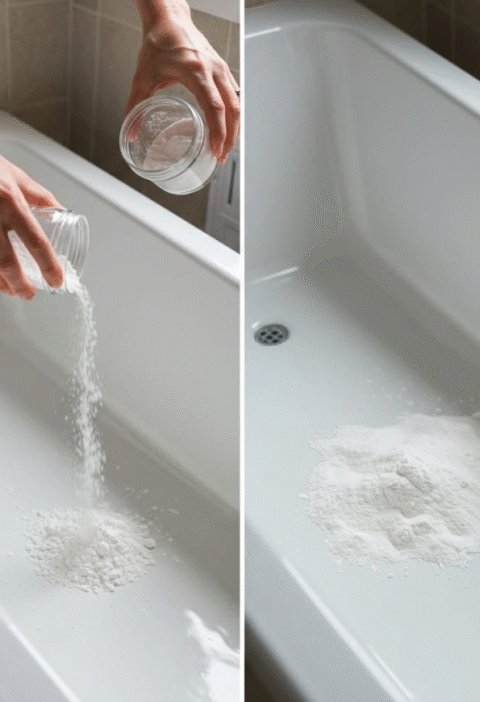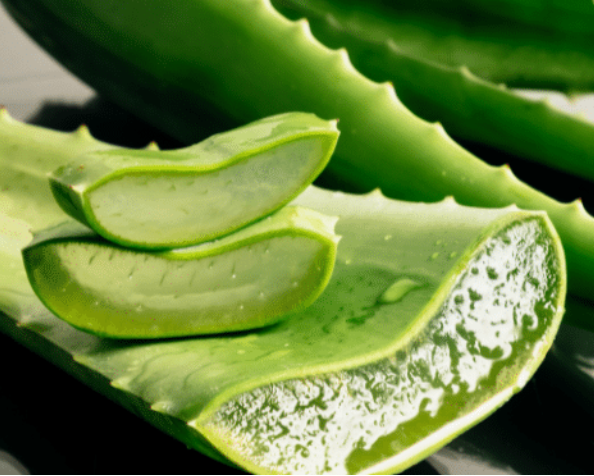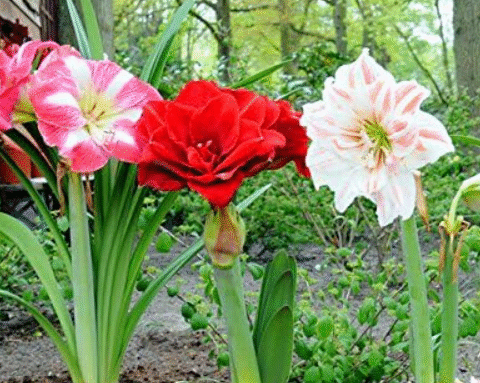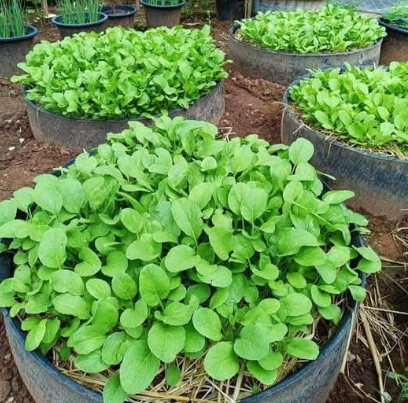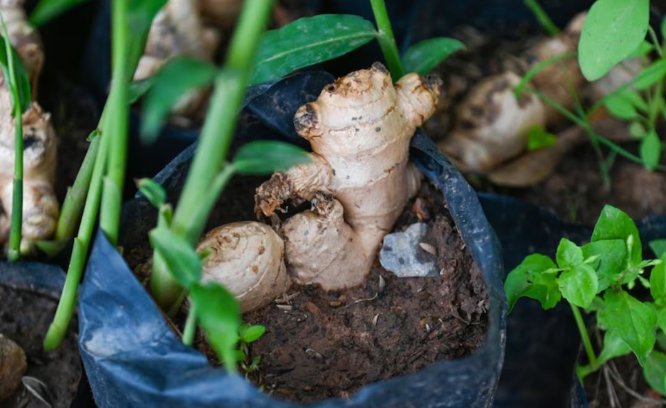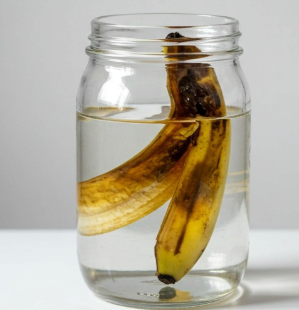14 Incredible Ways to Use Baking Soda in the Garden 🌿
Baking soda, also known as sodium bicarbonate, is one of the most underrated tools in a gardener’s arsenal. While it’s famous for its role in baking and cleaning, this humble powder also works wonders outdoors. From pest control to soil testing and compost deodorizing, baking soda is an affordable, non-toxic solution for various garden challenges.
Here’s a detailed look at 14 smart and sustainable ways to harness baking soda in your garden and why it should become a permanent resident in your gardening toolkit.
1. Use Baking Soda to Test Soil pH 🌱
Baking soda offers a quick, natural way to check whether your garden soil is acidic.
How To:
- Collect a small amount of moist soil in a container.
- Sprinkle a few tablespoons of baking soda on top.
- If it fizzes, your soil is acidic (pH below 7).
Why It Works: The reaction with acidic soil mimics a mini science experiment, giving you a fast insight into your soil’s pH without a test kit.
2. Natural Fungicide for Powdery Mildew 🍃
Powdery mildew is a fungal menace, especially for squash, cucumbers, and ornamentals. Baking soda offers a chemical-free solution.
Recipe:
- 1 tablespoon baking soda
- 1/2 teaspoon liquid soap (not detergent)
- 1 gallon water
Application: Spray weekly on affected leaves. The altered pH on the leaf surface discourages fungal growth.
3. Kill Weeds in Sidewalk and Driveway Cracks 🧱
Unwanted weeds in pavement cracks? Baking soda can dry them out without harsh herbicides.
How To:
- Sprinkle directly into the cracks and crevices.
- Repeat after rain or as needed.
Note: Avoid near other plants—it can harm desired vegetation if misused.
4. Control Cabbage Worms and Slugs 🐛
Protect leafy greens like kale, cabbage, and broccoli using a safe homemade mix.
How To:
- Mix equal parts baking soda and flour.
- Dust plants early in the morning or after watering.
Why It Works: The mixture disrupts the pests’ digestion while sticking to foliage thanks to the flour.
5. Treat Black Spot on Roses 🌹
Black spot can devastate roses. Combat it with a baking soda foliar spray.
Recipe:
- 1 tablespoon baking soda
- 1/2 teaspoon mild soap
- 1 gallon water
Spray weekly for prevention and treatment. Avoid applying during full sun to prevent leaf burn.
6. Sweeten Tomatoes 🍅
Reduce acidity in tomato soil to enhance flavor by using a pinch of baking soda.
How To:
- Sprinkle lightly around the base of each plant.
- Water in gently without touching the leaves.
Note: Use sparingly to avoid making soil overly alkaline.
7. Deodorize Compost Bins ♻️
Control compost odor naturally without interfering with decomposition.
How To:
- Sprinkle a handful of baking soda once a week over compost layers.
Benefit: Balances pH and controls acid odor from food scraps.
8. Clean Garden Tools Naturally 🧰
Keep tools rust-free and disease-free with a baking soda scrub.
How To:
- Make a paste with baking soda and water.
- Scrub with a brush or sponge.
- Rinse and dry thoroughly.
Optional: Add a splash of vinegar for extra power on rusted surfaces.
9. Freshen Garden Furniture and Pots 🪑
Remove grime and mildew from your outdoor furniture and planters.
Steps:
- Apply baking soda paste to stained areas.
- Scrub with a sponge or soft brush.
- Rinse clean with water.
10. Clean Greenhouse Panels 🌞
Let in more light and eliminate mildew buildup in greenhouses.
How To:
- Dissolve 2–3 tablespoons of baking soda in warm water.
- Use a cloth or sponge to wipe down glass or plastic panels.
11. Keep Cut Flowers Fresh 🌼
Extend the life of your bouquet with this simple vase hack.
Recipe:
- 1 pinch of baking soda
- 1 teaspoon of sugar
Mix into vase water and refresh every few days.
12. Deter Ants from Garden Beds 🐜
Control ant trails without synthetic pesticides.
How To:
- Mix equal parts baking soda and powdered sugar.
- Place near anthills or along known trails—away from food crops.
Caution: Do not apply directly onto edible crops.
13. Clean Birdbaths Without Chemicals 🕊️
Keep birdbaths safe and fresh for your feathered friends.
How To:
- Sprinkle baking soda in the dry birdbath.
- Add a bit of water and scrub with a brush.
- Rinse thoroughly before refilling.
14. Deodorize Gardening Gloves and Shoes 👟
Neutralize odors in garden gear easily.
Steps:
- Sprinkle baking soda inside gloves, boots, or shoes after use.
- Let sit overnight, then shake out excess before wearing again.
Baking Soda in the Garden: Quick Reference Table
| Use | Method | Frequency |
|---|---|---|
| Soil pH Testing | Sprinkle on moist soil, observe fizz | Once per growing season |
| Powdery Mildew | Baking soda + soap + water spray | Weekly |
| Weed Control | Sprinkle into sidewalk cracks | As needed |
| Tool Cleaning | Baking soda paste scrub | Monthly or as needed |
| Compost Deodorizing | Handful weekly | Weekly |
10 Frequently Asked Questions About Baking Soda in the Garden
- Is baking soda safe for plants?
In moderation, yes. Overuse can increase soil alkalinity and damage plants. - How often should I apply baking soda spray?
Weekly applications for mildew or black spot are generally effective. - Will baking soda harm earthworms?
Used correctly, no. Avoid direct, heavy applications to soil rich in earthworms. - Can I use baking soda for indoor plants?
Yes, in diluted sprays to control fungus or pests. - Does baking soda deter all pests?
It helps with slugs, cabbage worms, and ants, but not all garden pests. - Can baking soda kill grass?
Yes—avoid applying to lawns or areas with desired ground cover. - Does it help with aphids?
Indirectly—by deterring ants that farm aphids. - Is baking soda a fertilizer?
No—it alters pH but does not provide nutrients. - Can I clean raised beds with it?
Yes—use as a scrub for wood or metal frame cleaning. - How should I store baking soda in the garden?
Keep it in a sealed container in your shed or tool tote to protect it from moisture.
Final Thoughts 🌼
Simple, safe, and incredibly versatile—baking soda is a natural problem-solver that belongs in every gardener’s shed. Whether you’re boosting your blooms, protecting your crops, or freshening your gear, this inexpensive household item proves that sometimes the best garden tools aren’t found in stores, but in your pantry.
🌿 Keep a box nearby, and discover just how many green miracles baking soda can help you achieve!

